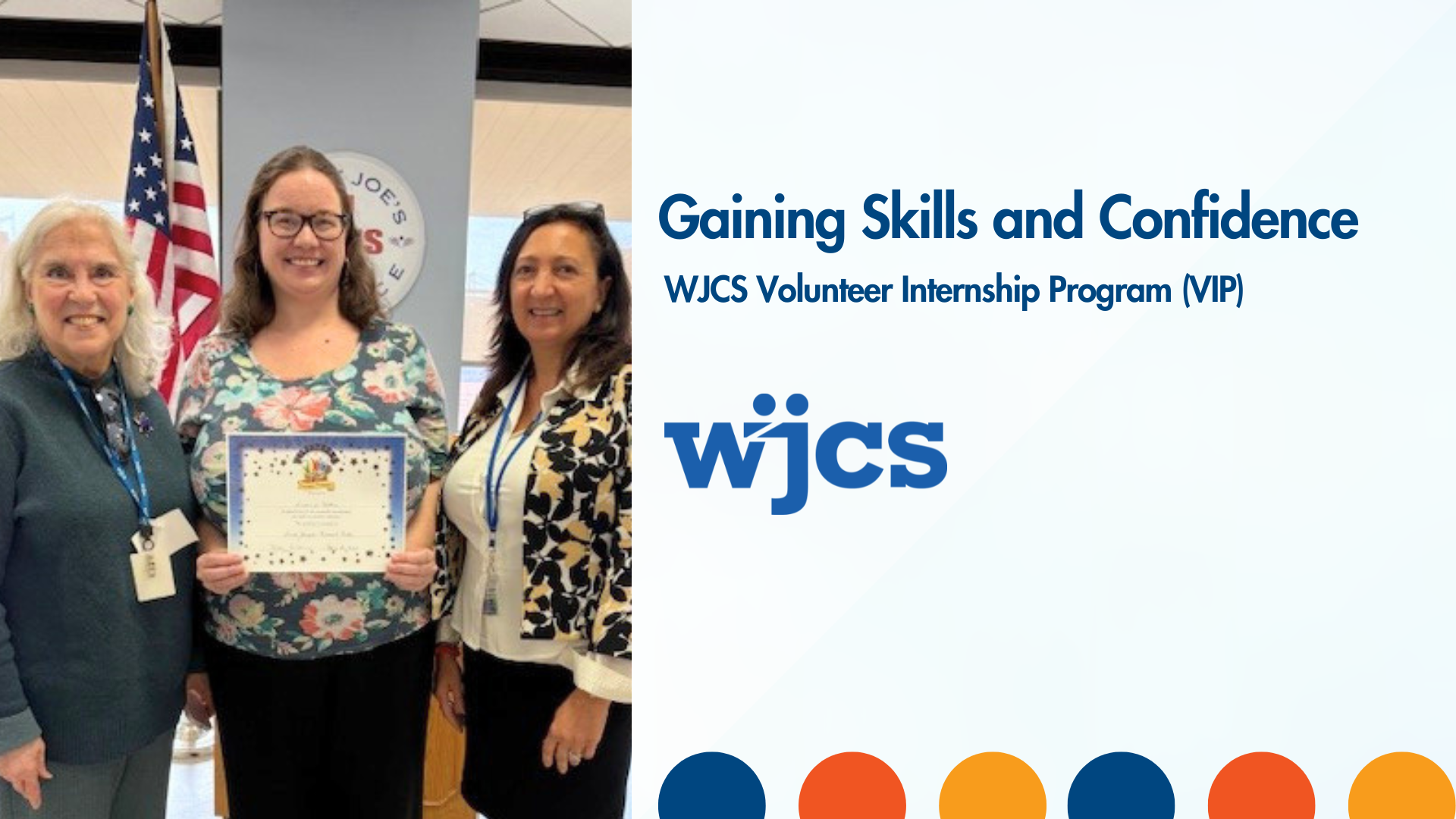By Tally Aliphas Palefski, LMSW
The early years of a child’s life are an essential foundation for later success—in school, career, and in life. During the early years and beyond, we believe that parents are their children’s first and most important teachers. Westchester Jewish Community Services (WJCS) is committed to providing parents and young children with the tools they need to develop a healthy bond, early literacy and language skills, and social-emotional capabilities.
Our Parent-Child Programs recently introduced a new initiative, “Strategy of the Month.” Its goal is to help parents hone in on one attainable approach each month to cultivate their child’s emotional intelligence. To help parents implement these strategies successfully, we provide them with specific language they can use.
Try one strategy each month from the list below to boost your child’s social and emotional development and build your child’s school readiness!
Communication Strategy: Let your child know about a transition shortly before it happens.
Examples: “We have five more minutes left to play, then we’ll put the toys away.”
“In two minutes we are going to put on our shoes to go outside.”
Empathy Strategy: Describe your child’s action or expression and label the emotion.
Examples: “Your arms are crossed- you seem angry that your friend grabbed the toy from you.”
“I see you jumping and smiling- it looks like you are very proud of your artwork!”
Cooperation Strategy: Explain the reason for your request.
Examples: “We are putting on your smock so your shirt stays clean while you paint.”
“Time to brush those teeth so they stay clean and healthy.”
Persistence Strategy: Talk about your child’s effort and progress.
Examples: When you want to say “You’re so smart!” or “Good job!” try saying instead: “You are really concentrating on your puzzle- I see you trying different pieces.”
“You’re working hard to help me clean up the toys- we are getting there!”
Confidence Strategy: Reframe a “No!” as a “Yes!”
Examples: When you want to say “No, I can’t right now!” try saying instead: “I’d love to play with you as soon as I’m done preparing dinner.”
When you want to stay “No! Stop that!” try saying:“Keep your feet under the table.” Or “Food stays on the table.”
Problem-Solving Strategy: Define the problem and explore possible solutions together.
Examples: “You don’t like that your hands got mud on them. What do you want to do about it? Look for a wipe? Go to the bathroom to wash them?”
“It’s so hard to hold all of the crayons at once. I wonder what you can do about it…Maybe carry them in a container? Or I’ll carry some and you’ll carry some?
Self-Control Strategy: Model a self-regulating technique.
Examples: “I feel my heart beating fast. I am feeling frustrated and am going to take a few breaths to calm my heart.”
“Let’s breathe together. Let’s smell the flowers.”
Tally Palefski, LCSW, Director of Early Childhood Programs, [email protected]; 914-761-0600 x2423




